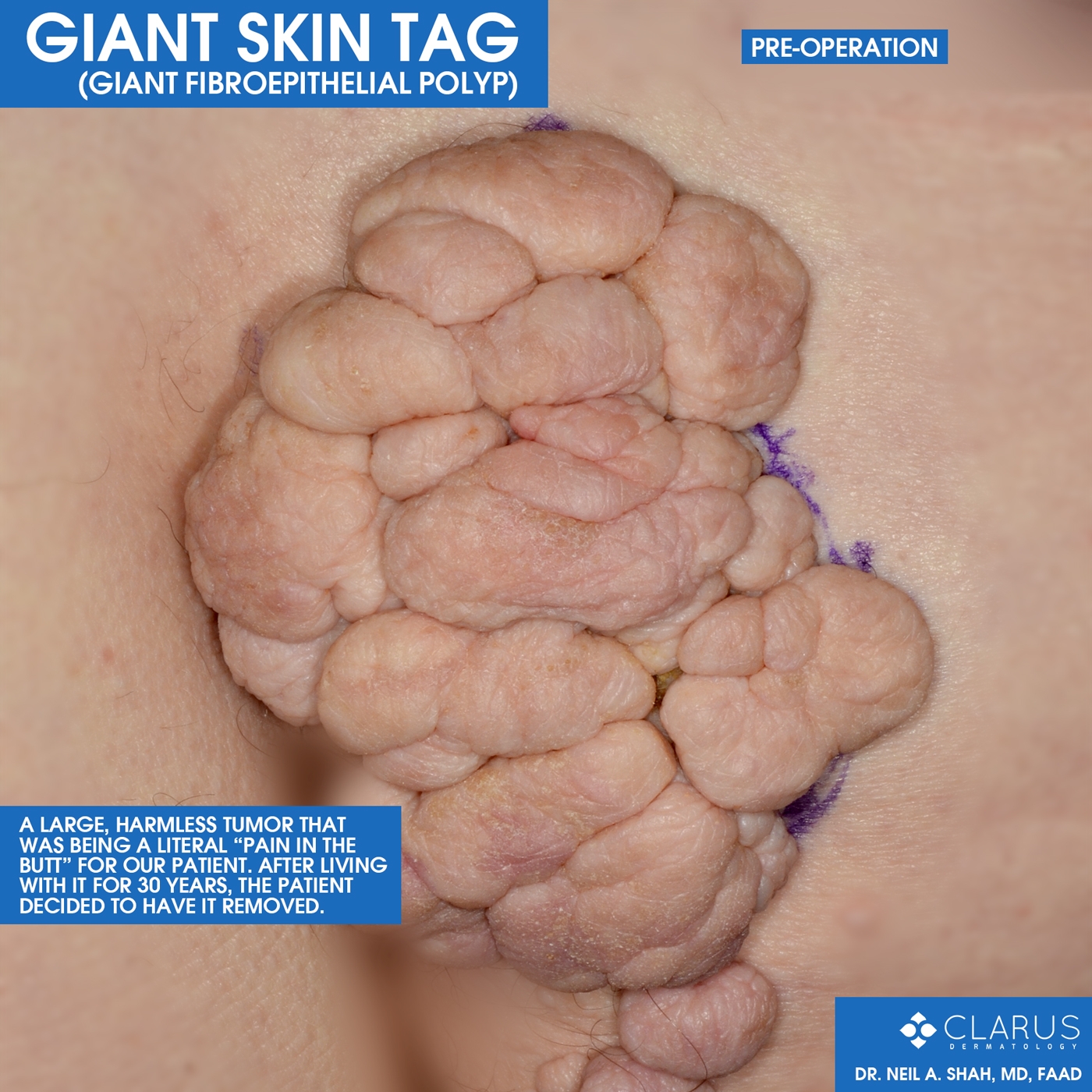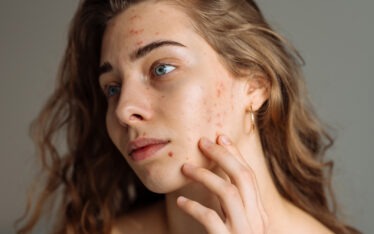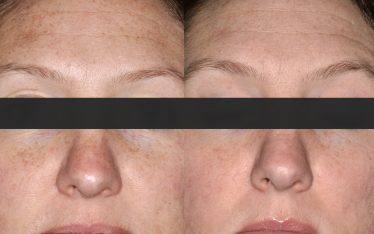
You don’t see tumors that look like this everyday – and if you’re a little squeamish, you may not want to see tumors that look like this ever.
The images are from a patient that board-certified dermatologist Dr. Neil Shah recently saw here at Clarus Dermatology. The large, harmless tumor was determined to most likely be a giant skin tag, known formally as a giant fibroepithelial polyp, and it was being a literal “pain in the butt” to our patient for nearly 30 years.
The patient had finally had enough and came to us to have it excised. The removal procedure itself took only 20 minutes in our office. Many other doctors would take this relatively simple case to an operating room in a hospital, but Dr. Shah was able to remove this safely and efficiently in our office with no pain for the patient.



